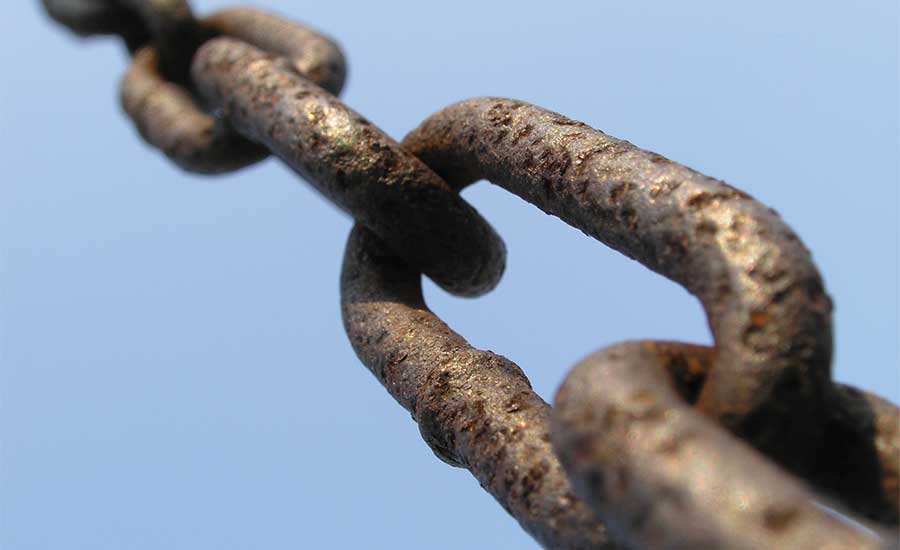Remembering Why You Drill

Knowing the “why” of what you do can help you be a stronger link in your crew’s chain. Source: Mark Schellhase / Wikimedia Commons / CC BY-SA 3.0
A few weeks ago I read an article online that stopped me in my tracks. The main idea of the article was to remind people about the importance of focusing on the “why” of our work, as opposed to always fixating on the “what.” What do I mean by this? I mean that it is critical to the health of our team to remember why we are drilling water wells, why we are conducting pump tests, why we are fixated on well development, and why we are insisting that the project be executed perfectly.
Why are you working long, hard hours in the hot sun? For a paycheck? Yes, to a certain degree. But why are you at the jobsite in the first place?
I can answer that very simply.
You are tasked with delivering clean water to the farmers, the mothers, the children, the animals, the counties, the cities and the states that we work for.
Personally, I have a hard time thinking of a job as important as the job of delivering clean drinking water to a population of people.
You have the most important job in the world. Without your services, without your skills, without your tireless dedication to your trade, people would be without water.
Why is it so easy for us to lose sight of this most important purpose?
Why do we get stuck in the day-to-day grind and fail to carry ourselves with positive attitudes and pride in what we do?
Why do we get stuck in a cycle of negativity and lose sight of the big picture and how important our “why” is?
In a previous article for National Driller, I wrote extensively about the difficult task of recruiting and retaining teammates who are willing and able to go the extra mile when duty calls. I talked about the struggle of retaining good men when I cannot pay them $1 million per year, or when they get a better offer from the oilfield. I talked about the heartache that comes with bringing someone on board only to have them split after 60 days because they haven’t been promoted to CEO yet.
I’ve read and re-read that article countless times and it dawned on me the other day that one of the most critical elements missing from my entire argument was the power of positive leadership and mission-driven work.
What do I mean by this?
You’ve heard the saying that a team is only as strong as its weakest link. Loosely translated, one weak or negative member can bring down the entire group.
I’ve personally witnessed one negative employee in the field have a profound negative impact on productivity, collective happiness and profitability. I’ve watched one negative team member tear down everything we, as a group, worked so hard to build. I’ve watched one team member show up in a bad mood, and by 9 a.m. the entire group of men is grumpy. I’ve watched one negative team member cause an entire group to lose sight of the “why.”
As much as it is my responsibility to ensure you have projects to complete, to produce your paychecks, to offer competitive benefits, to provide adequate training and PPE, and to ensure you have safe equipment to operate, it is your job to maintain a positive attitude, to welcome new team members, and to represent the “why” of our team with pride.
If we function as a united team, we would all arrive each morning proud and dedicated to our “why”: to deliver clean drinking water to our customers. If we function as a united team, we would all feel personally invested when a new team member joins us. We would all feel a sense of responsibility to ensure that every team member succeeds. If we function as a united team, we would all feel empowered to offer suggestions, raise concerns and change practices that aren’t working.
If all of those elements are in place, employee turnover would largely cease to exist, and recruitment of new employees would be a piece of cake! Who wouldn’t want to join a team of positive and committed individuals united with a common understanding of why their work is so important?
Instead of always placing the blame on someone else, let us all stop for a moment, look in the mirror and ask ourselves what we can do to become a better team member.
Looking for a reprint of this article?
From high-res PDFs to custom plaques, order your copy today!





